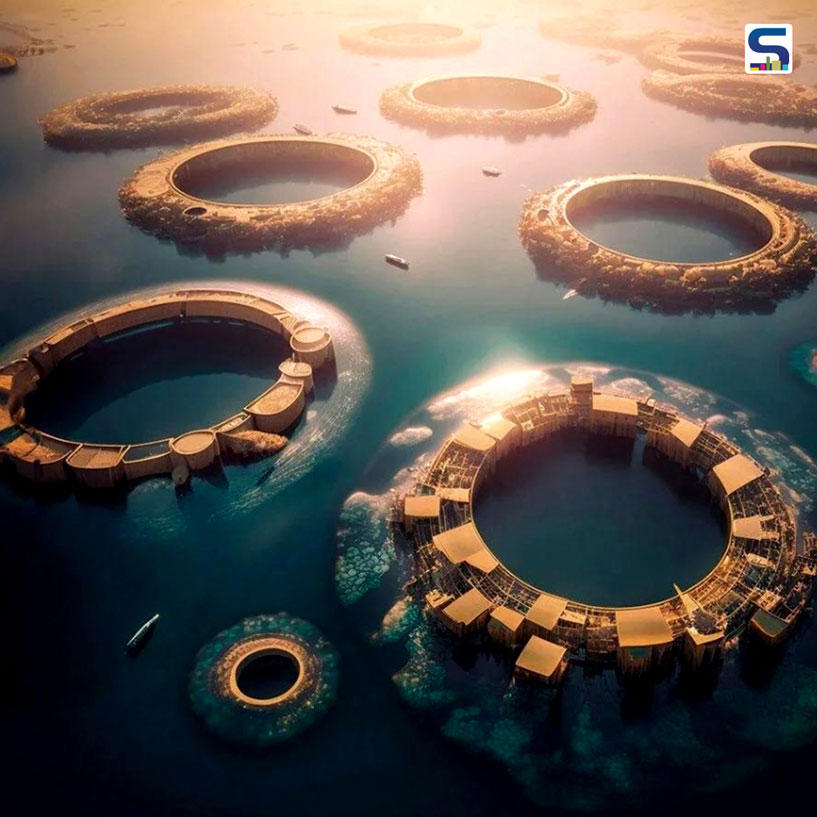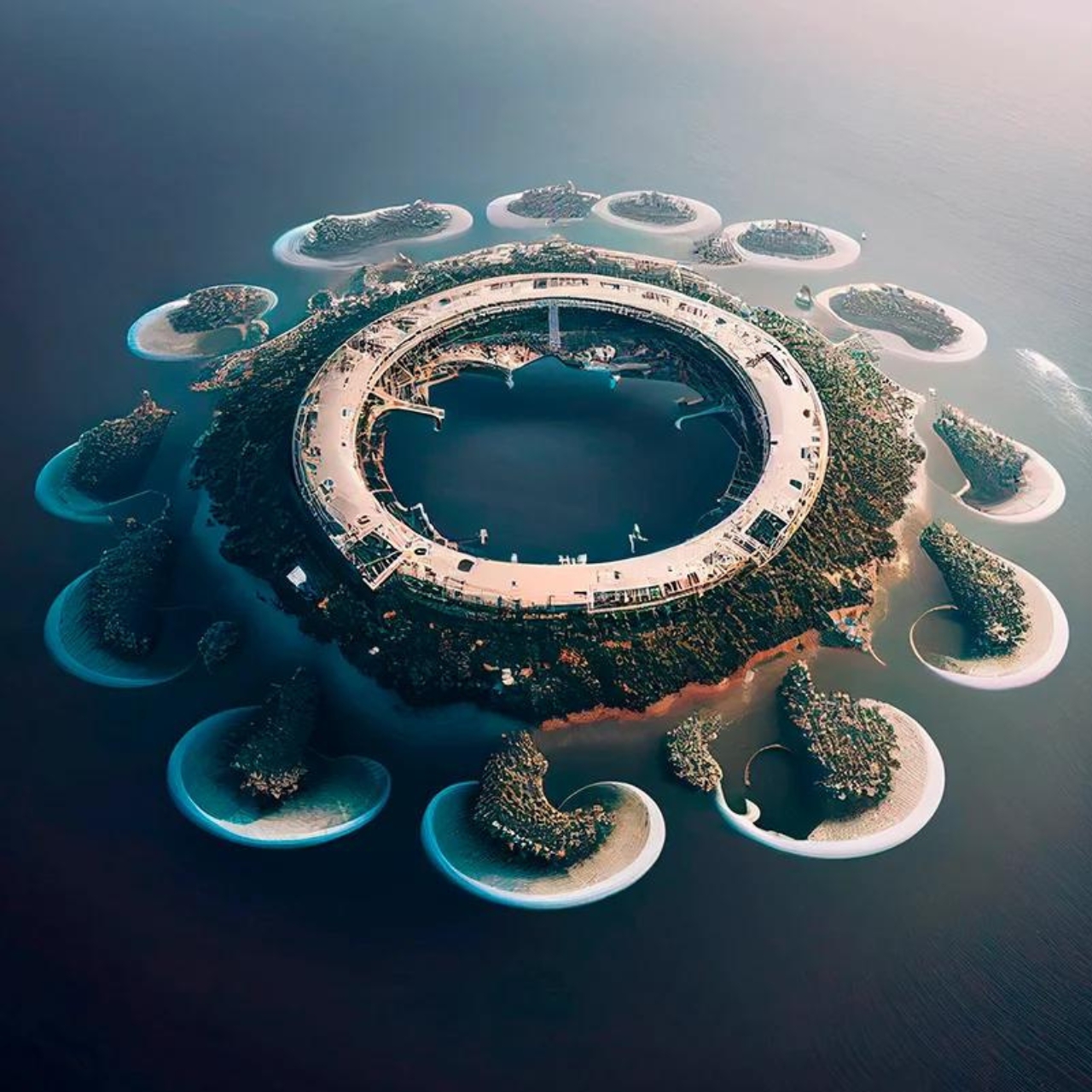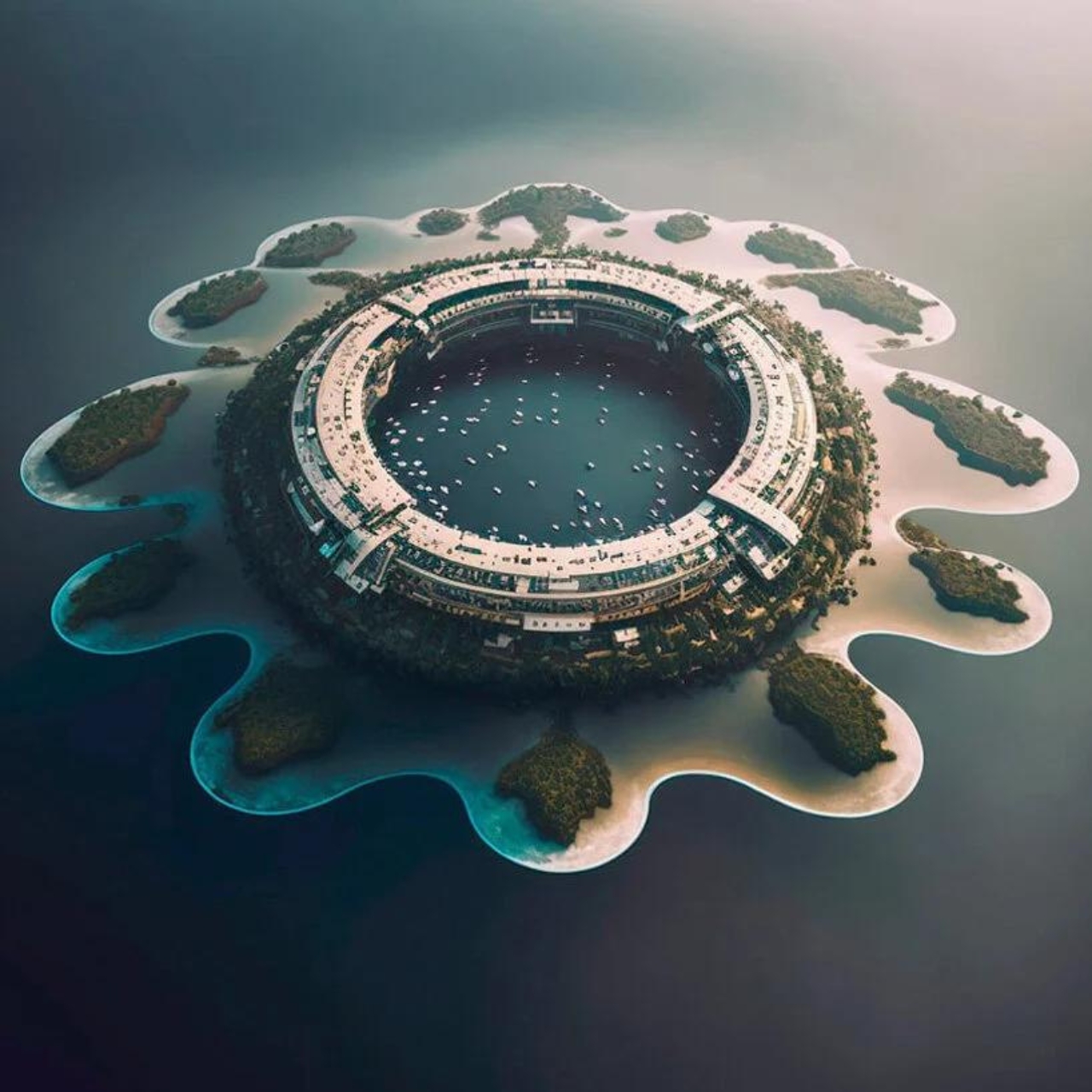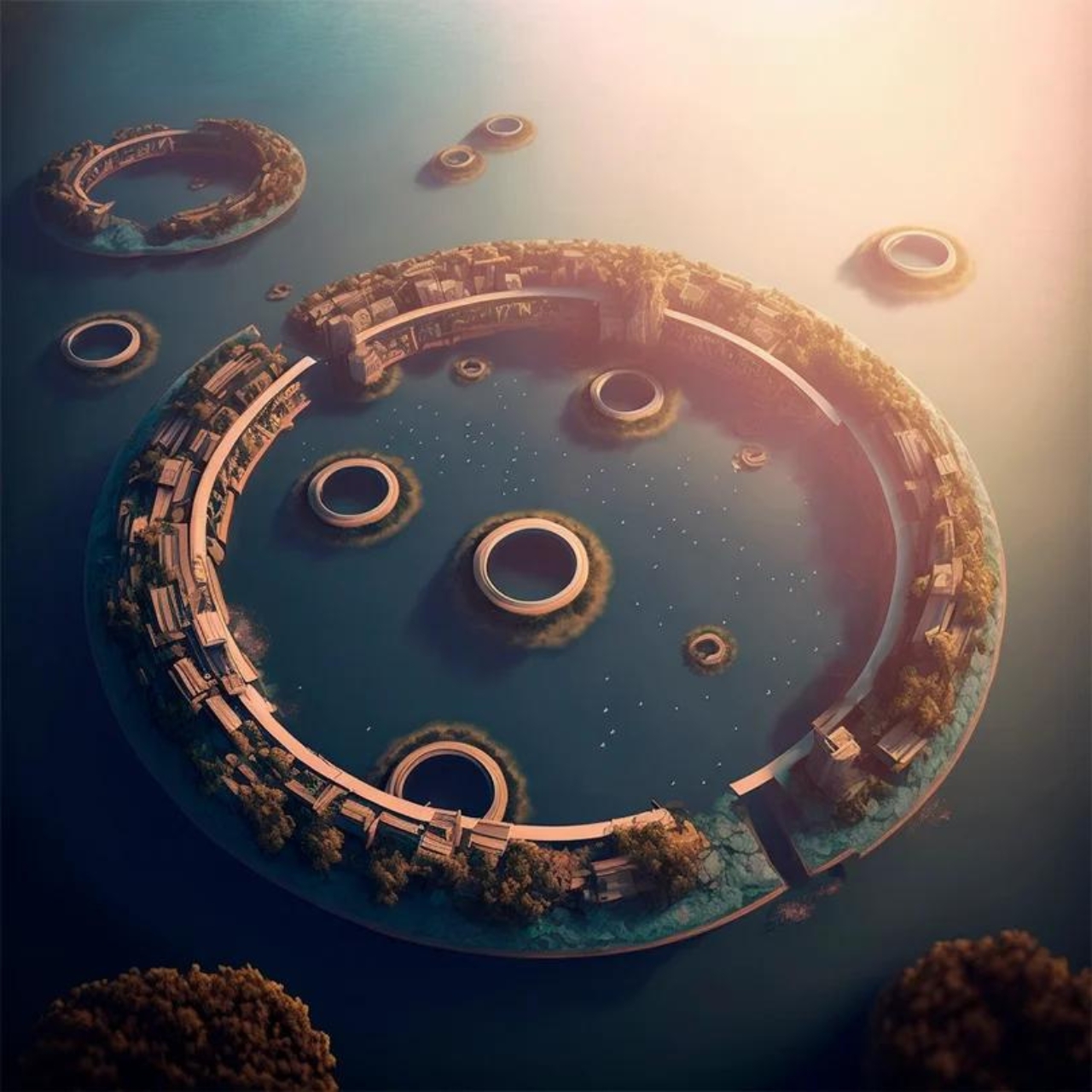
As the sea level is rising at an alarming rate because of the melting glaciers, many countries have already started to urbanize the sea to save themselves from submerging under the water just like today. On the same lines as Saudi Arabia’s Oxagon project and South Korea’s Buzan project, Estudio Focaccia Prieto proposes the concept of Polimeropolis- a huge group of floating cities enclosing lagoons of unpolluted ocean water. Through this, architects plan to create a new sustainable ecosystem of habitation. SURFACES REPORTER (SR) presents here more details about the project along with the renderings created by Architects Juan Manuel Prieto and Clara Focaccia in collaboration with AI artist Maxi Araya through Midjourney-generated drone shots.
Also Read: These Suspended Camping Pods offer Comfort and Luxury of Modern Lodging | Floating Retreat
 Cleaning up the polluted 'Garbage Patch'
Cleaning up the polluted 'Garbage Patch'
The idea behind the project is to create an urbanized sustainable environment in the middle of the pacific ocean to facilitate cleaning up the contaminated 'Garbage patch'. Though it does not sound interesting, the plan is to generate electricity through recyclable trash and tidal movement, and reverse osmosis will create potable water.
 Even the food production will also be based on the marine flora and fauna in the enclosed lagoons. So, this new metropolis will allow people to live in a safe natural habitat without causing any harm to marine life.
Even the food production will also be based on the marine flora and fauna in the enclosed lagoons. So, this new metropolis will allow people to live in a safe natural habitat without causing any harm to marine life.
Take shape as habitable rings
Architects envisioned a series of mixed-use city rings that are habitable in the North Pacific Ocean, at very first glance, these are looking like cities that we generally see in dystopian or sci-fi movies and books, circumscribed in a massive oceanic lagoon that is currently just floating in the garbage.

Also Read: A Futuristic Library in Milan Topped By An Organic Floating Ring | Studio Noa*
Floating cities will be made from recycled plastic waste
Floating cities are designed to clean up the ocean and 'prevent us from drowning in our own garbage'. The floating island will be constructed using recycled plastic waste that has been contaminating the sea for years now. According to the architects, " waste will be crushed and compacted in situ in factories and then redeveloped into a wholly new construction ecosystem. Each mixed-use urban city is entirely self-sufficient and can accommodate around 4000 residents. Later on, they plan to add other facilities such as resorts, parks, airports and other recreational and eco-tourism spaces.
 The innovative project idea seems wonderful now but its main target is to allow people to rethink "the way we produce, consume and dispose of things, and prioritise the reuse and recycling of resources." Juan Manuel Prieto mentions, " It is a proposal for a new paradigm of urbanization that seeks to reconcile the needs of the human species with the conservation and respect for the environment. It not only addresses the problems caused by the overproduction of garbage but also creates a new ecosystem and way of life."
The innovative project idea seems wonderful now but its main target is to allow people to rethink "the way we produce, consume and dispose of things, and prioritise the reuse and recycling of resources." Juan Manuel Prieto mentions, " It is a proposal for a new paradigm of urbanization that seeks to reconcile the needs of the human species with the conservation and respect for the environment. It not only addresses the problems caused by the overproduction of garbage but also creates a new ecosystem and way of life."
Though the project is now in the conceptualisation stage, it would be interesting to see the idea turning into reality, hopefully in the next few years or perhaps decades.
Project Details
Project Name: Polimeropolis: the urbanization of the Great Pacific Garbage Patch
Architecture Firm: Estudio Focaccia Prieto
Lead Architects: Juan Manuel Prieto & Clara Focaccia
AI Artist: Maxi Araya
Keep reading SURFACES REPORTER for more such articles and stories.
Join us in SOCIAL MEDIA to stay updated
SR FACEBOOK | SR LINKEDIN | SR INSTAGRAM | SR YOUTUBE
Further, Subscribe to our magazine | Sign Up for the FREE Surfaces Reporter Magazine Newsletter
Also, check out Surfaces Reporter’s encouraging, exciting and educational WEBINARS here.
You may also like to read about:
Book Forms Translate Into Architectural Features In This Library in China | Panorama Design Group | Reading Mi
Sanjay Puri Architects Designs A Spiral Garden Library For Underprivileged Village Children In Rajasthan
And more…